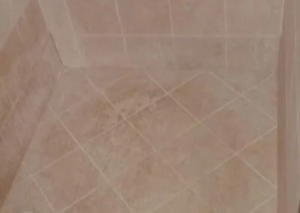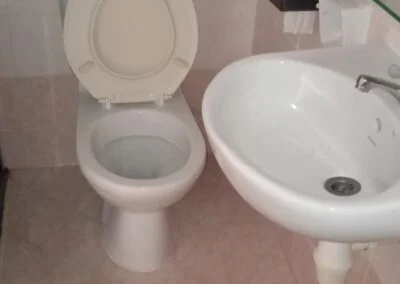Hey there, Singapore! Are you tired of dealing with water damage in your home or office?
Today, we’re diving into the world of effective waterproofing solutions right here in our bustling city-state.
Water issues can be a real headache, but don’t worry – we’ve got you covered.
Let’s start with a quick question: Have you ever noticed damp spots on your walls or ceilings?
If you have, you’re not alone. Many Singaporeans face this problem, especially during our rainy seasons.
But here’s the good news – there are plenty of ways to tackle this issue head-on.
Waterproofing is more than just a quick fix; it’s an essential part of maintaining any building in Singapore.
Our tropical climate means we get a lot of rain and humidity, which can lead to serious water damage if left unchecked.
So, let’s explore some effective waterproofing solutions that work well in our unique environment.
First up, let’s talk about membrane waterproofing.
This method involves applying a thin, waterproof layer to surfaces like roofs, balconies, and bathrooms.
There are two main types: sheet membranes and liquid-applied membranes.
Sheet membranes are pre-fabricated and come in rolls, while liquid membranes are applied as a coating that dries to form a seamless barrier.
Both are great options, but liquid membranes are often preferred for their ability to conform to irregular surfaces.
Now, let’s move on to cementitious waterproofing.
This method uses a mixture of sand, cement, and special waterproofing compounds.
It’s particularly effective for areas like basements and underground structures.
The mixture is applied in layers, creating a strong, water-resistant barrier.
One of the biggest advantages of cementitious waterproofing is its durability – it can last for years with proper maintenance.
Speaking of maintenance, did you know that regular inspections are crucial for any waterproofing system?
It’s true! Even the best solutions need a bit of TLC to keep working effectively.
We recommend scheduling annual inspections to catch any potential issues early on.

Now, let’s talk about a problem that’s all too common in Singapore – leaky bathrooms.
Many of us have experienced the frustration of water seeping through tiles or collecting in corners.
One effective solution for this is polyurethane injection.
This method involves injecting a special foam into cracks or joints.
The foam expands to fill the gaps, creating a watertight seal.
It’s a great option for fixing existing leaks without having to tear out tiles or walls.
But what about outdoor areas like balconies and patios?
These spaces are constantly exposed to the elements, so they need extra protection.
One popular solution is elastomeric coating.
This is a flexible, rubber-like material that can be applied over existing surfaces.
It expands and contracts with temperature changes, making it ideal for our climate.
Plus, it comes in a variety of colors, so you can waterproof and beautify your outdoor spaces at the same time.
Now, let’s address a question many Singaporeans have: “Is waterproofing expensive?”
The answer isn’t a simple yes or no. The cost can vary depending on the size of the area and the method used.
However, it’s important to think of waterproofing as an investment.
The money you spend now can save you from costly repairs down the line.
Plus, many waterproofing companies in Singapore offer warranties, giving you peace of mind.
Speaking of companies, it’s crucial to choose a reputable waterproofing contractor.
Look for ones with good reviews and proper certifications.
Don’t be afraid to ask for references or examples of their previous work.
A good contractor will be happy to provide this information.

Now, let’s talk about some DIY waterproofing options.
While major waterproofing jobs are best left to professionals, there are some small-scale solutions you can try at home.
For example, you can use silicone sealant to fill small gaps around windows or in bathrooms.
There are also water-resistant paints available that can add an extra layer of protection to interior walls.
Just remember, these DIY solutions are best for minor issues or as additional protection – they’re not substitutes for professional waterproofing.
One aspect of waterproofing that’s often overlooked is proper drainage.
Even the best waterproofing system can fail if water isn’t directed away from the building properly.
This is especially important in Singapore, where heavy rains can overwhelm drainage systems.
Make sure your gutters and downspouts are clear and functioning correctly.
Consider installing French drains around your property to help channel water away from the foundation.
Now, let’s touch on a topic that’s becoming increasingly important: eco-friendly waterproofing solutions.
As we become more environmentally conscious, many Singaporeans are looking for green options.
The good news is that there are several eco-friendly waterproofing products available.
These include water-based sealants and coatings made from natural materials like plant oils and resins.
Not only are these better for the environment, but they’re also often safer for use in homes with children or pets.
Before we wrap up, let’s recap the main types of waterproofing we’ve discussed:
Membrane waterproofing, both sheet and liquid-applied.
Cementitious waterproofing for basements and underground structures.
Polyurethane injection for fixing leaks in bathrooms and other tiled areas.
Elastomeric coatings for outdoor spaces.
And don’t forget about the importance of proper drainage and regular maintenance.
Remember, effective waterproofing is about more than just applying a product.
It’s about understanding your specific needs and choosing the right solution.
Every building is different, so what works for your neighbor might not be the best option for you.
If you’re dealing with water issues or want to prevent them before they start, don’t wait.
Reach out to a professional waterproofing contractor in Singapore for an assessment.
They can help you develop a comprehensive waterproofing plan tailored to your property.
We hope this video has been helpful in understanding effective waterproofing solutions in Singapore.
If you found this information useful, please give the video a thumbs up and share it with friends who might benefit.
Got questions or experiences to share? Drop them in the comments below – we’d love to hear from you!

